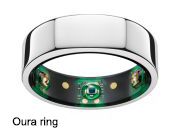
(HealthDay News) With U.S. deaths from coronavirus approaching 11,000 on Tuesday, signs emerged suggesting the pandemic might be peaking, experts say. New York state saw lower totals of new coronavirus patients in hospitals for the fourth day in a row, and a new modeling forecast released Monday painted a slightly more positive picture of how… read on >





























